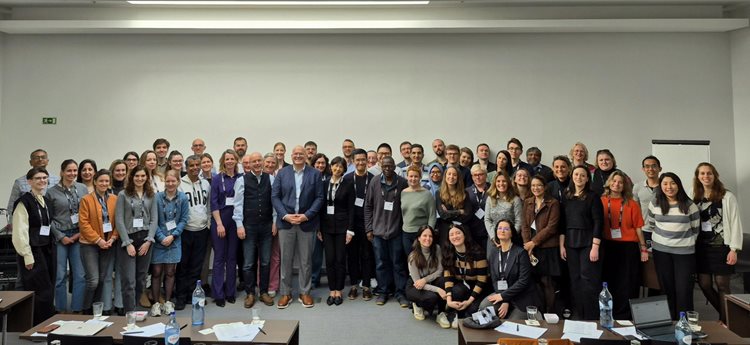12–14 March 2025, Lisbon, Portugal
My name is Bárbara de Castro and I work as a radiation oncologist at the Portuguese Institute of Oncology in Oporto, Portugal (IPO Porto). For the last two years, I have dedicated my practice to gastro-intestinal (GI) tumours.
The field of GI radiation oncology is exciting because there are continuous improvements in both the effectiveness and tolerability of treatment. Professionals in this area must constantly update their knowledge and engage in discussions. In the treatment of rectal cancer, developments have emerged in recent years that may change the mainstay of curative treatment. Having participated in previous ESTRO courses, especially during my residency, I took the opportunity to consolidate my knowledge by taking part in the ESTRO course on lower GI cancer that was held in Lisbon this year. The course faculty consisted of leading experts in the field and the authors of key studies and guidelines on both rectal and anal-canal cancers. The programme was designed to present and discuss the most relevant topics in the field.
In rectal cancer, given the abundance of new data and strategies, it is essential to consolidate evidence and to define new standards of care for both early and advanced cases. The hot topic of organ preservation was extensively discussed on the course; patient selection, preservation strategies and response evaluation were covered. There were excellent presentations on radiology, surgery, and physics, with a special focus on toxicity, quality of life, and patient-reported outcomes. Regarding anal cancer, authors of key studies used their clinical experience to offer special insights regarding patient management. We also gained insight into future treatment considerations, which might include both de-escalation and escalation of radiotherapy, and the integration of new systemic therapies.
There were also interactive sessions that significantly enhanced my clinical skills, including clinical case presentations by participants, FALCON contouring homework, and small-group exercises on radiation planning techniques and MRI interpretation.
As it consolidated the evidence on standard care and directly improved my contouring and imaging skills, this course largely met my expectations, and I believe my attendance at it will significantly improve the quality of treatment I provide to my patients. Specifically, after this course, I feel more confident in implementing organ preservation strategies for rectal cancer, enhancing overall treatment support and daily image verification, and individualising radiotherapy doses and volumes for different stages of anal cancer.
I believe that the course on lower GI tumours is an essential update for clinicians who treat rectal and/or anal cancer patients. Over three immersive days, the faculty reviews the evidence that supports the latest changes in the management of both early and advanced cases, strengthens imaging and contouring skills, and facilitates discussions on clinical and technical questions. Additionally, it was an honour to meet experts in the field and to discuss practical, everyday cases alongside them.

Class Photo Lisbon 2025

Bárbara de Castro
Radiation oncologist, IPO Porto - Porto, Portugal
i12945@ipoporto.min-saude.pt